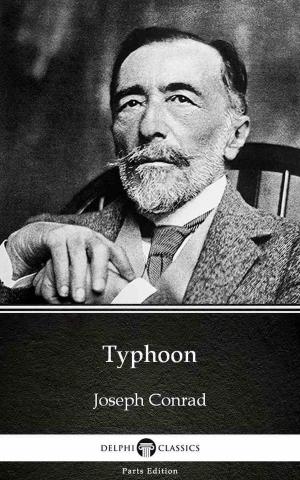The Purpose of Life From Islamic Perspective
Nonfiction, Religion & Spirituality, Middle East Religions, Islam| Author: | Muham Sakura Dragon | ISBN: | 9781516300631 |
| Publisher: | PublishDrive | Publication: | June 27, 2016 |
| Imprint: | PublishDrive | Language: | English |
| Author: | Muham Sakura Dragon |
| ISBN: | 9781516300631 |
| Publisher: | PublishDrive |
| Publication: | June 27, 2016 |
| Imprint: | PublishDrive |
| Language: | English |
What is the meaning and purpose of life?’ This is, perhaps, the most important question that has ever been asked. Throughout the ages, philosophers have considered it to be the most fundamental question. Scientists, historians, philosophers, writers, psychologists and the common man all wrestle with the question at some point in their lives.
‘Why do we eat?’ ‘Why do we sleep?’ ‘Why do we work?’ The answers we would get to these questions would be similar. ‘I eat to live.’ ‘I sleep to rest.’ ‘I work to support myself and my family.’ But when it comes to what the purpose of life is, people are confused. We see their confusion by the type of answers we receive. Youths may say, "I live for booze and bikinis." The middle aged professional might say, "I live to save enough for a comfortable retirement." The old man would probably say, "I’ve been asking why I’m here most of my life. If there’s a purpose, I don’t care anymore." And perhaps the most common answer will be, "I really don’t know!"
How, then, do you discover the purpose of life? We basically have two options. The first is to let ‘human reason’ - the celebrated achievement of the Enlightenment - guide us. After all, the Enlightenment gave us modern science based on careful observation of the natural world. But have post-Enlightenment philosophers figured it out? Camus described life as "absurd"; Sartre spoke of "anguish, abandonment and despair." To these Existentialists, life has no meaning.
Islam is the response to humanity’s search for meaning. The purpose of creation for all men and women for all times has been one: to know and worship God.
The Quran teaches us that every human being is born conscious of God,
"(Remember) when your Lord extracted from the loins of Adam’s children their descendants and made them testify [saying]: ‘Am I not your Lord?’ They said: ‘Yes, we testify to it.’ (This was) in case you say on the Day of Judgment: ‘We were unaware of this.’ Or you say: ‘It was our ancestors who worshipped others besides God and we are only their descendants. Will you then destroy us for what those liars did?’"(Quran 7:172-173)
The Prophet of Islam teaches us that God created this primordial need in human nature at the time Adam was made. God took a covenant from Adam when He created him. God extracted all of Adam’s descendants who were yet to be born, generation after generation, spread them out, and took a covenant from them. He addressed their souls directly, making them bear witness that He was their Lord. Since God made all human beings swear to His Lordship when He created Adam, this oath is imprinted on the human soul even before it enters the fetus, and so a child is born with a natural belief in the Oneness of God. This natural belief is called fitra in Arabic.
What is the meaning and purpose of life?’ This is, perhaps, the most important question that has ever been asked. Throughout the ages, philosophers have considered it to be the most fundamental question. Scientists, historians, philosophers, writers, psychologists and the common man all wrestle with the question at some point in their lives.
‘Why do we eat?’ ‘Why do we sleep?’ ‘Why do we work?’ The answers we would get to these questions would be similar. ‘I eat to live.’ ‘I sleep to rest.’ ‘I work to support myself and my family.’ But when it comes to what the purpose of life is, people are confused. We see their confusion by the type of answers we receive. Youths may say, "I live for booze and bikinis." The middle aged professional might say, "I live to save enough for a comfortable retirement." The old man would probably say, "I’ve been asking why I’m here most of my life. If there’s a purpose, I don’t care anymore." And perhaps the most common answer will be, "I really don’t know!"
How, then, do you discover the purpose of life? We basically have two options. The first is to let ‘human reason’ - the celebrated achievement of the Enlightenment - guide us. After all, the Enlightenment gave us modern science based on careful observation of the natural world. But have post-Enlightenment philosophers figured it out? Camus described life as "absurd"; Sartre spoke of "anguish, abandonment and despair." To these Existentialists, life has no meaning.
Islam is the response to humanity’s search for meaning. The purpose of creation for all men and women for all times has been one: to know and worship God.
The Quran teaches us that every human being is born conscious of God,
"(Remember) when your Lord extracted from the loins of Adam’s children their descendants and made them testify [saying]: ‘Am I not your Lord?’ They said: ‘Yes, we testify to it.’ (This was) in case you say on the Day of Judgment: ‘We were unaware of this.’ Or you say: ‘It was our ancestors who worshipped others besides God and we are only their descendants. Will you then destroy us for what those liars did?’"(Quran 7:172-173)
The Prophet of Islam teaches us that God created this primordial need in human nature at the time Adam was made. God took a covenant from Adam when He created him. God extracted all of Adam’s descendants who were yet to be born, generation after generation, spread them out, and took a covenant from them. He addressed their souls directly, making them bear witness that He was their Lord. Since God made all human beings swear to His Lordship when He created Adam, this oath is imprinted on the human soul even before it enters the fetus, and so a child is born with a natural belief in the Oneness of God. This natural belief is called fitra in Arabic.















